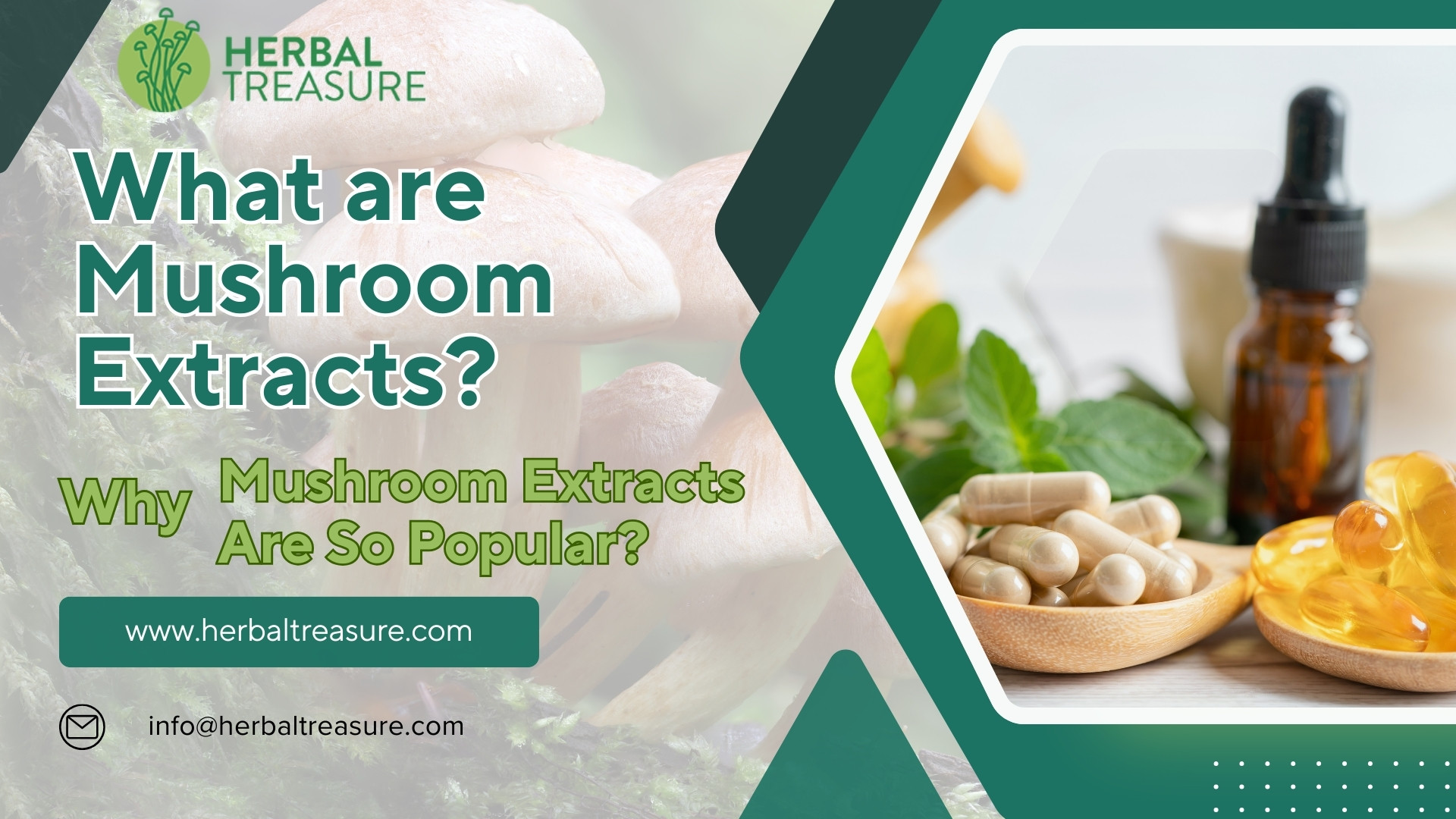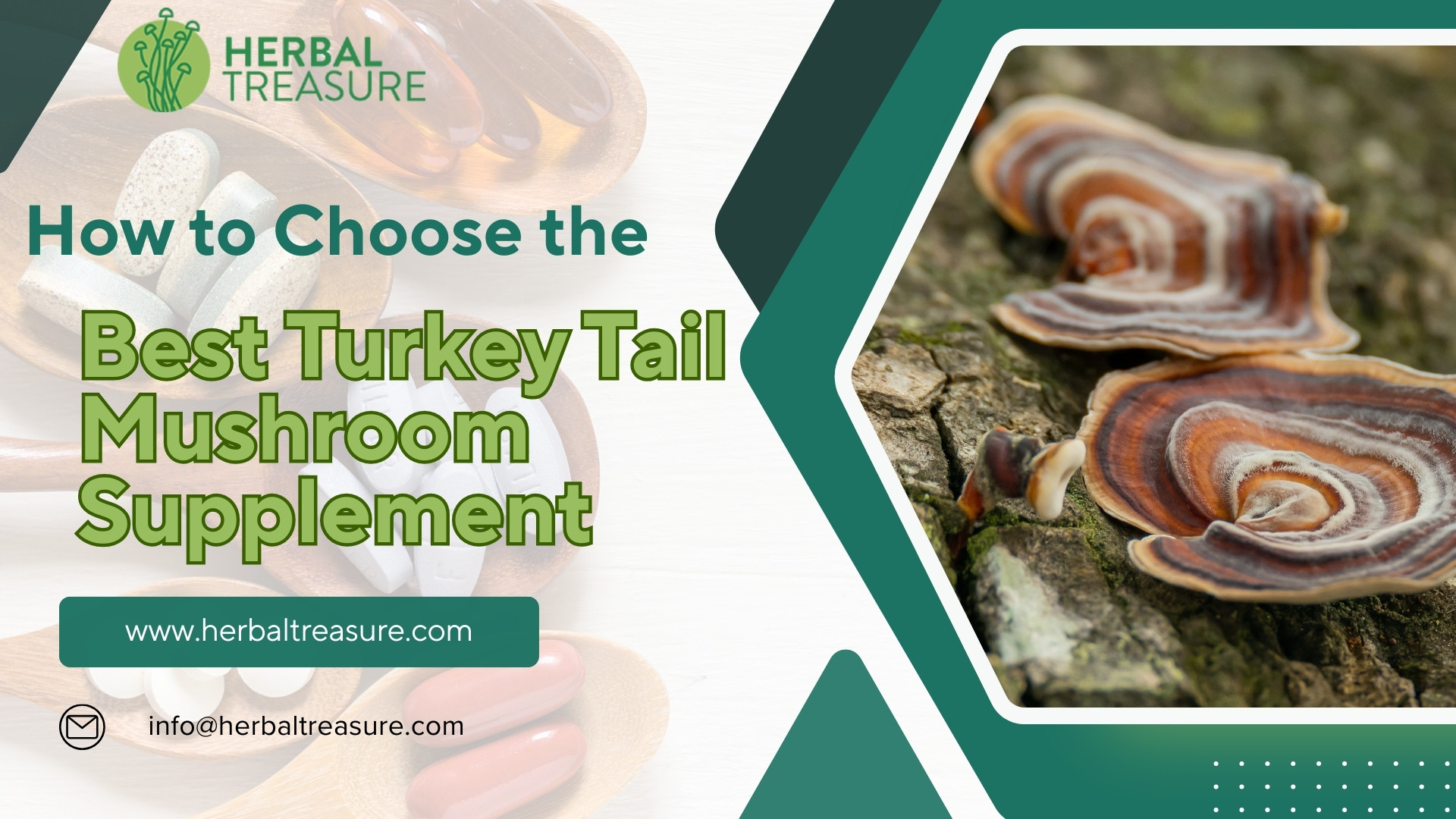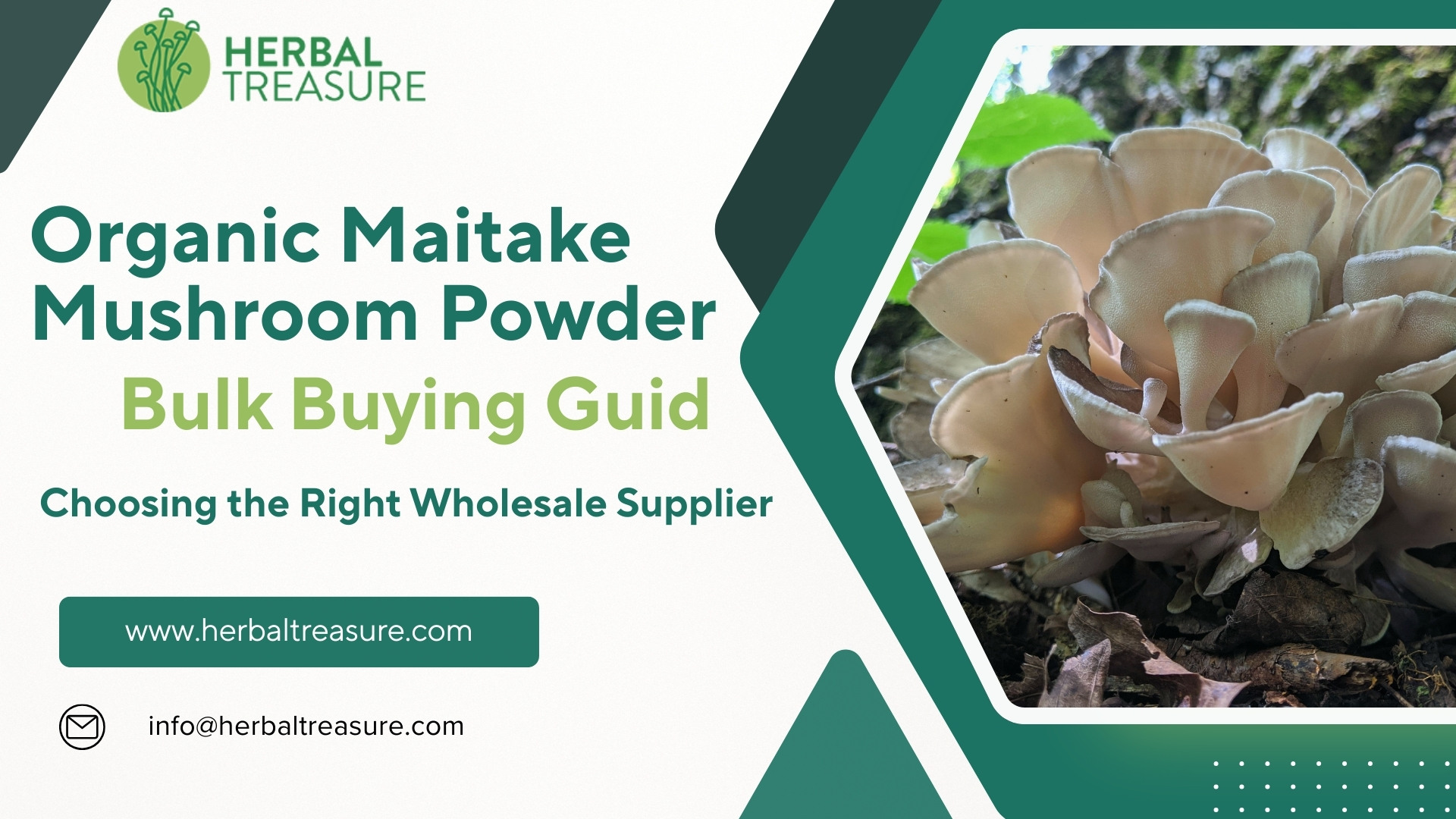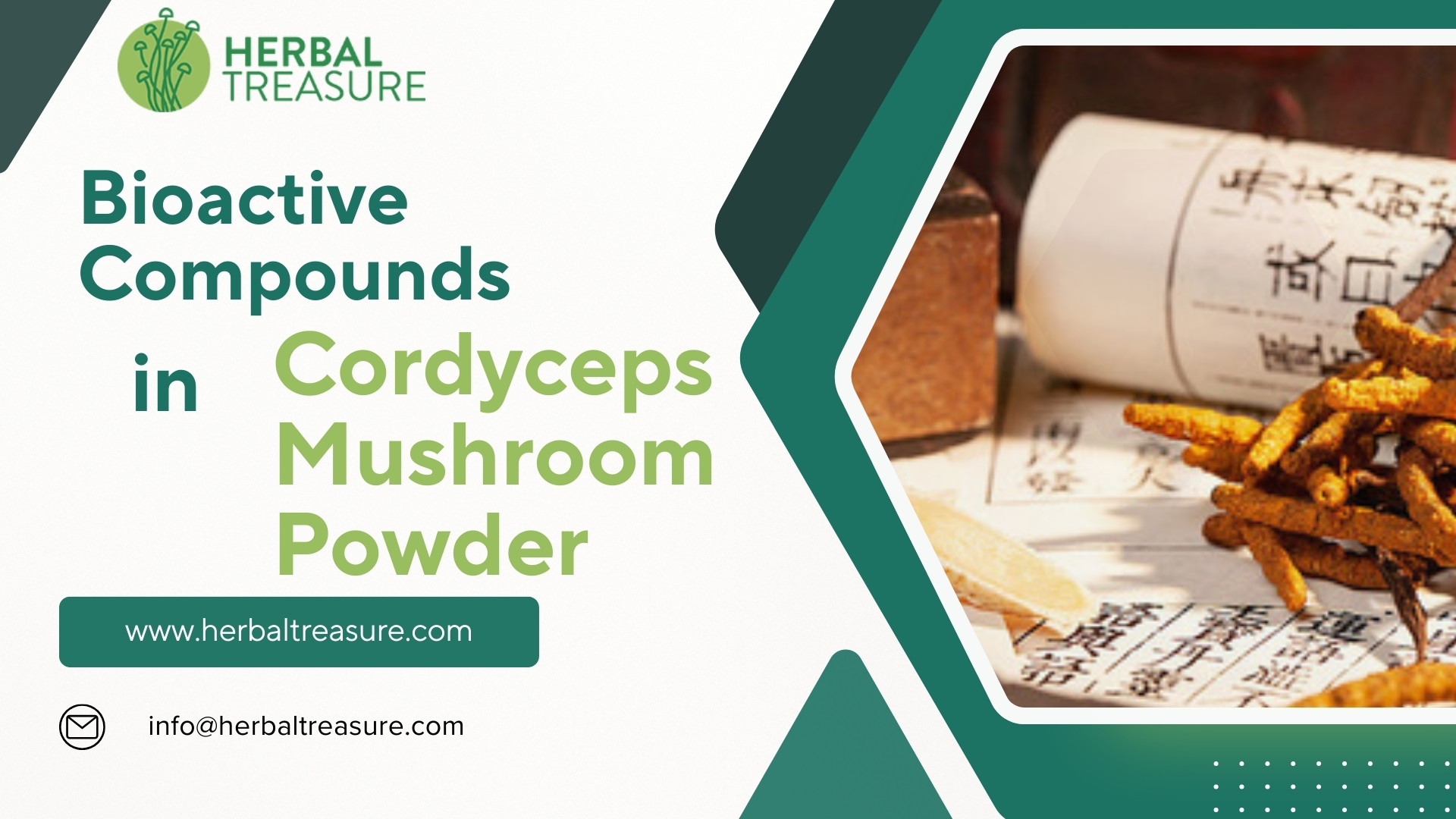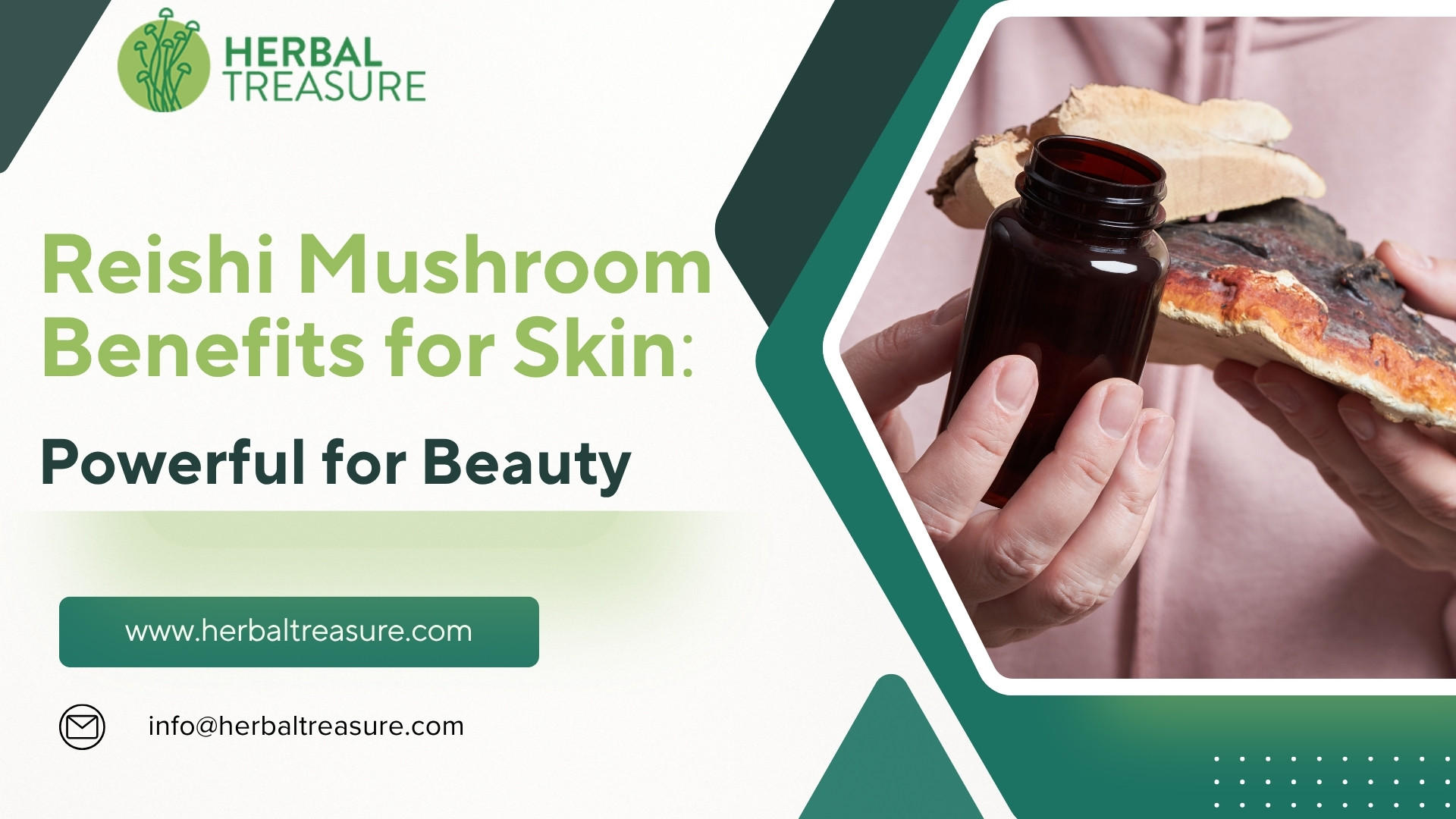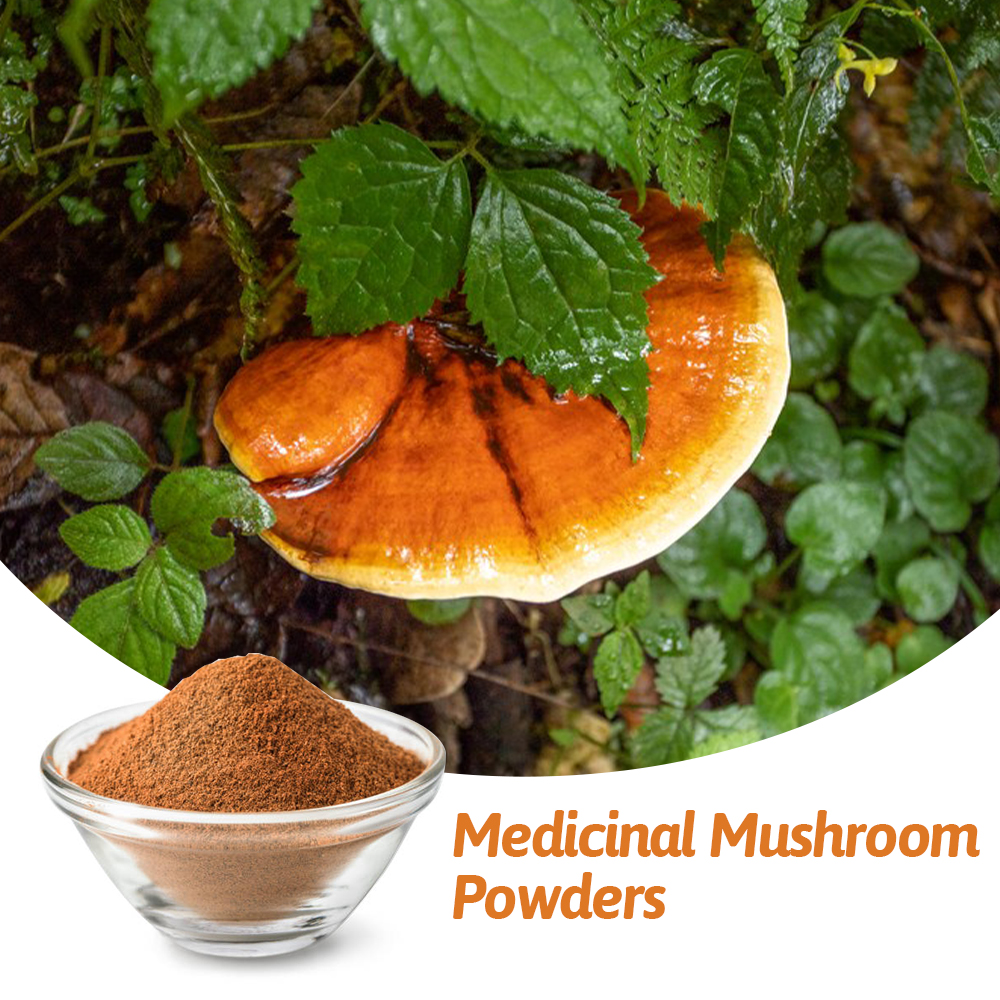Functional mushrooms are becoming increasingly popular in wellness, nutrition, and integrative medicine. As a result, more people are exploring mushroom-based supplements. Among the most popular formats are mushroom extract powder and whole mushroom powder. But what exactly sets them apart? Which one is more effective, and how should you choose between them?
This in-depth guide explores the production process, benefits, bioavailability, and use cases of each, helping you make an informed choice based on science, quality, and health goals
Mushroom Extract Powder vs Mushroom Powder: Main Differences
What is Mushroom Powder?
Mushroom powder comes from whole mushrooms that producers dry and grind into a fine texture. This form uses the entire fruiting body, so it keeps the natural balance of nutrients found in the original mushroom. Whole mushroom powder often contains fiber, vitamins, minerals, and some active compounds. People use whole mushroom powders for general nutrition and culinary purposes.
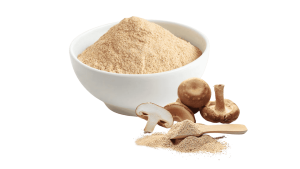
What is Mushroom Extract Powder?
Mushroom extract powder results from a process that pulls out specific compounds from the mushroom. Producers use extraction to concentrate certain beneficial molecules, such as beta-glucans or triterpenes. Mushroom extract powder usually contains higher levels of these active ingredients than whole mushroom powder. Many people choose mushroom extract powder for targeted health benefits.
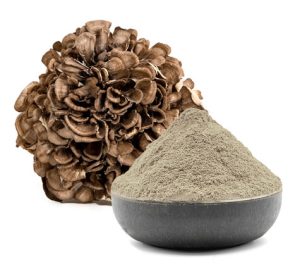
How are They Made?
To make whole mushroom powder, manufacturers dry the mushroom and grind it into a powder. This method keeps most of the mushroom’s original nutrients. For mushroom extracts, the process involves extraction using water, alcohol, or both. The extraction process breaks down the mushroom’s cell walls and releases medicinal compounds. After extraction, the liquid gets dried into a powdered mushroom extract.
What do They Contain?
Whole mushroom powder contains a wide range of nutrients, including protein, fiber, vitamins, and minerals. It also has some active compounds, but in lower amounts than extracts. Mushroom extract powder focuses on concentrated active ingredients, such as polysaccharides and triterpenes. Mushroom extracts often have less fiber and fewer vitamins than whole mushroom powders, but they deliver more potent medicinal effects.
| Feature | Whole Mushroom Powder | Mushroom Extract Powder |
|---|---|---|
| Source | Whole mushroom | Extracted compounds from mushroom |
| Nutrient Spectrum | Broad (fiber, vitamins, minerals) | Concentrated active compounds |
| Potency | Lower | Higher |
| Common Use | Nutrition, culinary | Medicinal, supplements |
Mushroom powder and mushroom extract often depends on the user’s goals. Whole mushroom powder supports general wellness and nutrition. Mushroom extract powder provides a higher dose of medicinal compounds for specific health needs. The extraction process makes mushroom extracts more potent and easier for the body to absorb. Both forms come from medicinal mushrooms, but their uses and benefits differ.
Mushroom Extract Powder: Potency and Benefits
Potency and concentration
Mushroom extract powders deliver maximum potency by concentrating the active compounds found in medicinal mushrooms. The extraction process removes the tough cell walls of the mushroom, making the beneficial molecules more available. Mushroom extract powder often contains higher levels of beta-glucans and triterpenes. These compounds support the immune system and provide strong medicinal effects. Many people choose mushroom extract for its targeted health benefits. Extraction allows for a more potent and absorbable supplement compared to whole mushroom powder.
Health benefits
Mushroom extracts offer a wide range of health benefits. They help support the immune system, boost energy, and improve focus. Some medicinal mushroom supplements may also help with stress and inflammation. The concentrated nature of mushroom extract means users can experience stronger effects with smaller servings. Many studies show that mushroom extracts can support overall wellness and provide specific medicinal benefits. People often use an easy-to-use mushroom extract blend to get the most from different mushrooms.
Bioavailability
Bioavailability measures how well the body absorbs and uses nutrients. Mushroom extract powders are more potent and absorbable than regular mushroom powder. Extraction breaks down the mushroom’s structure, making the active compounds easier for the body to use. This process increases the effectiveness of medicinal mushroom supplements. Mushroom extracts deliver more benefits in less time because the body can access the medicinal compounds quickly. People looking for strong health effects often choose mushroom extract for its high bioavailability.
Mushroom Powder: Nutritional Value and Uses
Nutrient profile
Whole mushroom powder offers a broad spectrum of nutrients. It contains protein, fiber, vitamins, and minerals that support daily health. Many people value whole mushroom powders for their natural content of antioxidants and polysaccharides. These nutrients help the body fight stress and maintain balance. Mushroom powder keeps the original nutrient profile of the mushroom. This makes it a good choice for those who want a full range of mushroom powder benefits.
| Nutrient | Found in Whole Mushroom Powder |
|---|---|
| Protein | Yes |
| Fiber | Yes |
| Vitamins | Yes |
| Minerals | Yes |
| Antioxidants | Yes |
Culinary and daily use
Whole mushroom powder works well in many recipes. People add it to smoothies, soups, and sauces for extra nutrition. The mild flavor blends easily with other foods. Many home cooks use mushroom powder as a seasoning or a Medicinal food boost. A diverse mushroom blend not only improves flavor but also supports overall well-being. Mushroom powder fits into daily routines without much effort.
General wellness
Whole mushroom powders support general wellness by providing a steady source of nutrients. They help maintain energy and support the immune system. Many people use mushroom powder for its gentle, everyday benefits. Unlike extracts, whole mushroom powder offers a balanced approach to health. Mushroom powders suit those who want nutrition from the whole mushroom, not just isolated compounds. Regular use can help people feel their best.
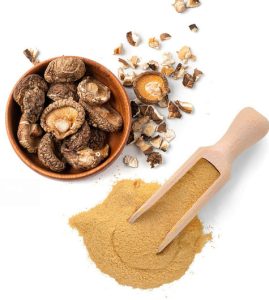
Mushroom Powder vs Mushroom Extract: Quick Comparison Table
| Feature | Whole Mushroom Powder | Mushroom Extract Powder |
| Processing | Dried and ground whole mushrooms | Extracted using water/alcohol |
| Nutrient Profile | Broad (vitamins, fiber, minerals) | Concentrated active compounds |
| Potency | Low to moderate | High; standardized for bioactives |
| Bioavailability | Lower (raw compounds) | Higher (compounds are unlocked) |
| Best For | Culinary use, general wellness | Targeted health support |
| Typical Uses | Smoothies, soups, teas | Capsules, elixirs, tinctures |
| Cost | More affordable | Pricier due to processing and strength |
How to Choose: Mushroom Extract Powder or Mushroom Powder
Wellness goals
People should first consider their health goals when choosing a supplement. Those who want targeted support for immunity or stress may benefit from a mushroom extract. Mushroom extract offers a concentrated dose of medicinal compounds. Whole mushroom powder works well for general wellness and daily nutrition. Medicinal mushrooms in powder form provide a broad range of nutrients.
Usage preferences
Some people prefer an effective way to take mushroom supplements that fits their routine. Mushroom extract often comes in capsules or as a fine powder for drinks. This form provides a quick and effective way to take mushroom supplements. Whole mushroom powder blends easily into food and recipes. Many choose a functional mushroom product based on taste, convenience, or how they plan to use it.
Quality considerations
Quality matters for any supplement. Look for products that list the mushroom species and extraction method. High-quality mushroom extract should show the amount of medicinal compounds like beta-glucans. Whole mushroom powder should come from reputable sources and avoid fillers. Medicinal mushroom supplements with third-party testing offer extra peace of mind. Always check labels to ensure the supplement meets safety and potency standards.
| Factor | Mushroom Extract | Whole Mushroom Powder |
|---|---|---|
| Potency | High | Moderate |
| Nutrient Range | Focused (medicinal) | Broad |
| Best For | Targeted health support | General wellness |
Choosing the right supplement depends on personal health needs, preferred use, and product quality.
Pros and cons
| Type | Pros | Cons |
|---|---|---|
| Mushroom powder | Offers a full range of nutrients. Easy to add to food and drinks. | Lower concentration of active compounds. |
| Mushroom extract | Delivers higher potency and better absorption. Targets specific needs. | May lose some nutrients. Often costs more. |
Mushroom powder provides a natural way to get vitamins, minerals, and fiber. Many people like it for daily nutrition and simple recipes. Mushroom extract gives a stronger dose of active compounds. It works well for those who want targeted health support.
Both mushroom powder and extract powder offer excellent health benefits, but they are not interchangeable. Your choice should depend on whether you prioritize whole-food nutrition or concentrated, bioavailable compounds. For culinary applications, mushroom powder shines. For therapeutic use, standardized mushroom extract powders provide measurable results.
Conclusion
Mushroom extracts and powders each offer distinct advantages. Extracts deliver higher potency and faster absorption, while whole powders provide a broader nutrient profile. Understanding the differences helps you choose the right supplement for your goals.
For many users, a combination of both offers the most balanced benefits. Whether you’re seeking potent medicinal effects or everyday nutritional support, high-quality mushroom supplements can elevate your wellness routine.
Browse our expert guide or shop high-quality mushroom extract powder and powder blends for your wellness goals.




